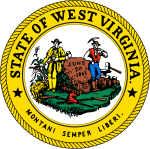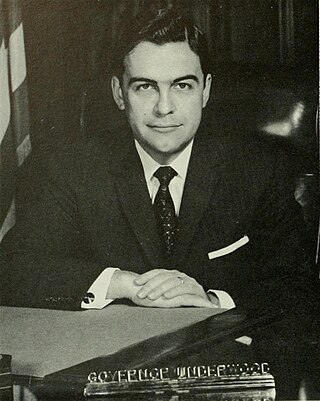
Cecil Harland Underwood was an American Republican Party politician from West Virginia, known for the length of his career.

The 1996 United States Senate elections were held on November 5, with the 33 seats of Class 2 contested in regular elections. Special elections were also held to fill vacancies. They coincided with the presidential election of the same year, in which Democrat Bill Clinton was re-elected president.

The 1980 United States Senate elections were held on November 4, coinciding with Ronald Reagan's victory in the presidential election. The 34 Senate seats of Class 3 were contested in regular elections. Reagan's large margin of victory over incumbent Jimmy Carter gave a huge boost to Republican Senate candidates, allowing them to flip 12 Democratic seats and win control of the chamber for the first time since the end of the 83rd Congress in January 1955.

The 1976 United States Senate elections was an election for the United States Senate. Held on November 2, the 33 seats of Class 1 were contested in regular elections. They coincided with Democrat Jimmy Carter's presidential election and the United States Bicentennial celebration. Although almost half of the seats decided in this election changed parties, Carter's narrow victory did not provide coattails for the Democratic Party. Each party flipped seven Senate seats, although, one of the seats flipped by Democrats was previously held by a Conservative.

United States gubernatorial elections were held on November 2, 2004, in 11 states and two territories. There was no net gain in seats for either party, as Democrats picked up an open seat in Montana while defeating incumbent Craig Benson in New Hampshire, while Republicans defeated incumbent Joe Kernan in Indiana and won Missouri after Bob Holden lost in the primary. These elections coincided with the presidential election.

The 1970 United States Senate elections was an election for the United States Senate. It took place on November 3, with the 33 seats of Class 1 contested in regular elections. Special elections were also held to fill vacancies. These races occurred in the middle of Richard Nixon's first term as president. The Democrats lost a net of three seats, while the Republicans and the Conservative Party of New York picked up one net seat each, and former Democrat Harry F. Byrd Jr. was re-elected as an independent.

The 1968 United States Senate elections were elections for the United States Senate. Held on November 5, the 34 seats of Class 3 were contested in regular elections. They coincided with the presidential election of the same year. The Republicans picked up five net seats in the Senate. This saw Republicans win a Senate seat in Florida for the first time since Reconstruction.

United States gubernatorial elections were held on November 7, 2006, in 36 states and two territories. The elections coincided with the midterm elections of the United States Senate and the United States House of Representatives.

United States gubernatorial elections were held on November 7, 2000, in 11 states and two territories. The elections coincided with the presidential election. Democrats gained one seat by defeating an incumbent in West Virginia. As of 2023, this remains the last gubernatorial cycle in which a Democrat won in Indiana.
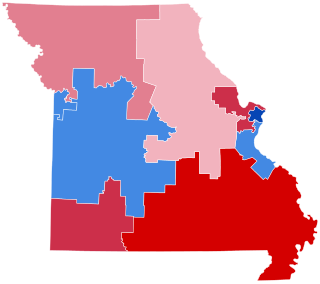
The 2008 congressional elections in Missouri were held on November 4, 2008, to determine who will represent the state of Missouri in the United States House of Representatives. The primary election for candidates seeking the nomination of the Republican Party, the Democratic Party, and the Libertarian Party was held on August 5.

The 2004 West Virginia gubernatorial election took place on November 2, 2004 for the post of Governor of West Virginia. Democratic Secretary of State of West Virginia Joe Manchin defeated Republican Monty Warner. Manchin won all but 3 counties. Despite Democratic presidential nominee John Kerry losing the state to George W. Bush by double digits in the concurrent presidential election, Manchin won by nearly 30 points.

The 2000 United States elections were held on November 7, 2000. Republican Governor George W. Bush of Texas defeated Democratic Vice President Al Gore of Tennessee in the presidential election. Republicans retained control of both houses of Congress, giving the party unified control of Congress and the presidency for the first time since the 1954 elections.

The 1996 United States elections were held on November 5. Democratic President Bill Clinton won re-election, while the Republicans maintained their majorities in both houses of the United States Congress.
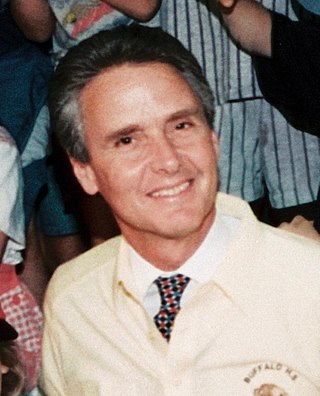
The 1992 West Virginia gubernatorial election took place on November 7, 1992. Incumbent Democratic Governor Gaston Caperton won re-election by defeating former Republican U.S. Representative Cleve Benedict and Democratic State Senator Charlotte Pritt, who ran as an independent write-in candidate after losing to Caperton in the Democratic primary election. Benedict had defeated Vernon Criss for his party's nomination; this was the only election between 1964 and 2000 that the Republicans had nominated someone other than Arch A. Moore or Cecil H. Underwood. Until 2020 this is the last time West Virginia has voted for the same party for Governor and for President, as both elections are held concurrently in the state. This is the most recent time that Democrats won both races concurrently.
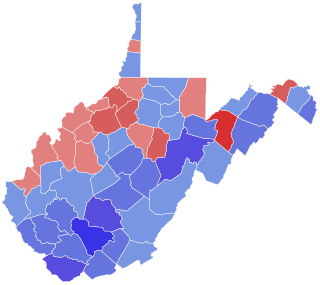
The 1960 United States Senate election in West Virginia was held on November 8, 1960. Incumbent Democratic U.S. Senator Jennings Randolph won re-election to a full term.

The 2012 United States Senate election in Pennsylvania was held on November 6, 2012, alongside a presidential election, other elections to the United States Senate in other states, as well as elections to the United States House of Representatives and various state and local elections. Incumbent Democratic U.S. Senator Bob Casey, Jr. ran for and won re-election to a second term, defeating Republican nominee Tom Smith, and Libertarian nominee Rayburn Smith.

From March 8 to June 7, 1960, voters of the Republican Party chose its nominee for president in the 1960 United States presidential election. Incumbent Vice President Richard Nixon was selected as the nominee through a series of primary elections and caucuses culminating in the 1960 Republican National Convention held from July 25 to July 28, 1960, in Chicago, Illinois.

The 1996 West Virginia gubernatorial election took place on November 5, 1996 to elect the Governor of West Virginia. Republican Cecil Underwood, who had previously been the Governor of West Virginia from 1957 to 1961, defeated Democratic State Senator Charlotte Pritt. Concurrently, the state voted the opposite way federally, choosing Democratic U.S. Presidential nominee, incumbent Bill Clinton over Republican nominee Bob Dole in the Presidential election that year.

United States gubernatorial elections were held on November 3, 2020, in 11 states and two territories. The previous gubernatorial elections for this group of states took place in 2016, except in New Hampshire and Vermont where governors only serve two-year terms. These two states elected their current governors in 2018. Nine state governors ran for reelection and all nine won, while Democrat Steve Bullock of Montana could not run again due to term limits and Republican Gary Herbert of Utah decided to retire at the end of his term.

The 2020 West Virginia gubernatorial election was held on November 3, 2020, to elect the Governor of West Virginia, concurrently with the 2020 U.S. presidential election, as well as elections to the United States Senate, elections to the United States House of Representatives and various state and local elections.

